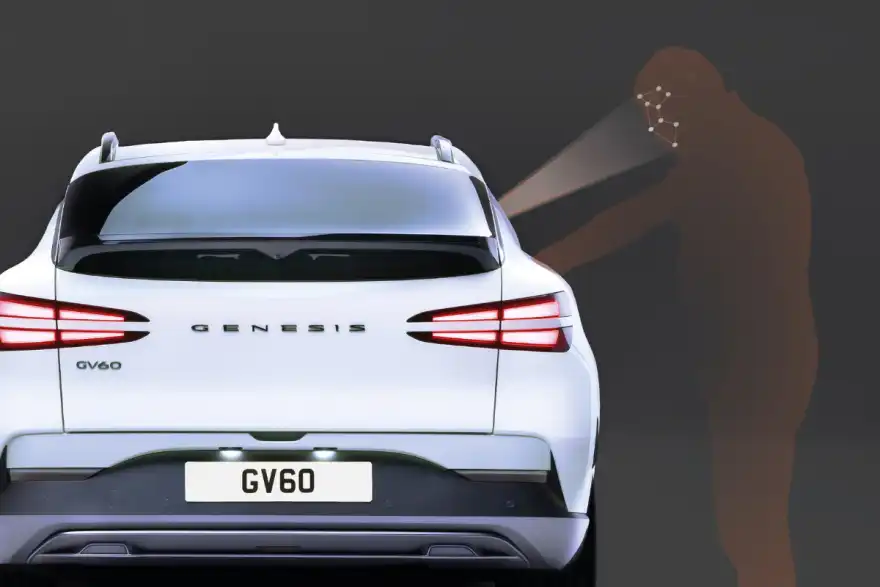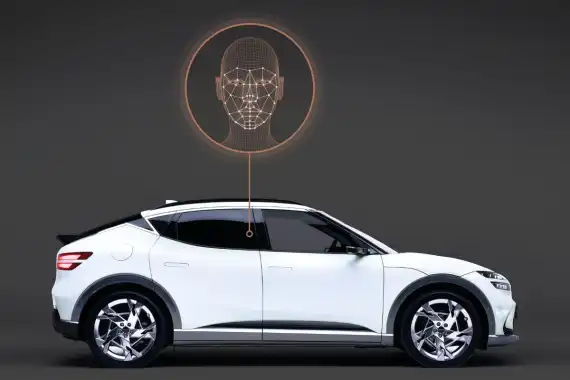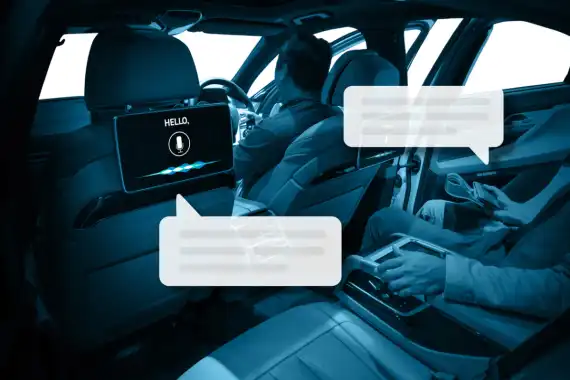
Facial recognition technology has become quite familiar in the realm of consumer electronics since Apple introduced its Face ID for the iPhone way back in 2017. However, the idea of using this biometric technology in cars is a more recent development.
Genesis, a rising luxury brand in the electric vehicle (EV) market from Korea, made waves by bringing facial recognition to market with its GV60 electric SUV, enabling drivers to unlock the vehicle with a smile.

Sony and Honda have also announced intentions to adopt this technology, while Ford has filed a patent for "enhanced biometric authorisation." It's worth noting that filing a patent doesn't always indicate immediate product plans, as Ford clarified.
Many automakers are already incorporating attention-tracking technology, monitoring the driver's eye and face position to ensure focus on the road—a seemingly harmless safety feature that opens the door to exploring further uses of biometric data by vehicles.
These applications are built on two core assumptions. Firstly, that drivers are comfortable with their biometric data being scanned and stored by the car manufacturer, potentially shared with numerous partners for monetisation. Secondly, that the technology functions reliably as designed.
However, neither of these assumptions stands up to real scrutiny. The reality is that the effectiveness and privacy of facial recognition in automotive settings are largely unexamined due to the obscurity surrounding its implementation, allowing it to enter showrooms with minimal oversight.
Let's delve into the implications of this trend.
Concerns and failures of facial recognition technology
Why would a car company bother implementing facial recognition technology if it doesn't actually deliver as promised? The issue lies in the stark disparity in accuracy based on race and gender. While top facial recognition systems boast 99% accuracy, this statistic predominantly applies to identifying white males.
For women or people of colour, the reliability of facial recognition can plummet to as low as 65%, resulting in frequent failed attempts to unlock your car with your face.

The root cause of this failure lies in the datasets used to train the technology, which heavily feature Caucasian faces. This undisclosed bias has led to significant misidentification issues, with innocent Black individuals facing false arrests due to flawed facial recognition software. The severity of these problems has prompted major cities to ban government agencies from using facial recognition.
Considering that law enforcement struggles with functional facial recognition, can car companies realistically overcome these challenges for commercial use? Imagine being stranded in harsh weather, unable to access your car because of a faulty facial recognition system.
Moreover, how do common accessories like hats, sunglasses, scarves, and masks affect facial recognition algorithms? In regions with cold winters or sunny summers, wearing such accessories is routine, complicating the technology's reliability.
Another concern is aging, as facial recognition can become unreliable in as little as five years due to changes in appearance. These factors highlight significant hurdles for flawless facial recognition in everyday scenarios, raising doubts about its practicality and safety in automotive applications.
Data privacy dilemma
In a world where facial recognition technology is flawless, concerns over what happens to a customer’s biometric data and the extent of surveillance conducted by such systems remain complex issues.
Genesis claims that biometric data remains within its vehicles' confines, stored solely locally. However, what if the vehicle is stolen? How secure is this data against potential theft, where criminals could exploit it alongside other valuable components of the vehicle?
While the idea of criminals accessing the facial database of a GV60 may alarm potential customers, the more insidious threat lies in the "legitimate" use of biometric data by partner companies. When we engage with vehicle software, we often overlook the terms of service, inadvertently consenting to how our information is used.
Most brands repackage and sell information on how we use our vehicles, interact with our phones, and where and how frequently we drive, often without transparency regarding data protection or how law enforcement may access this data.
Integrating biometric data into this mix essentially turns our facial prints into digital commodities, over which we have minimal control. Facial recognition represents just the beginning of a surveillance continuum, potentially unlocking deeper intrusions into our privacy. For example, a vehicle capable of lip-reading could bypass legal restrictions, mining personal details without consent.

The shared nature of vehicles exacerbates these concerns. Even if owners are informed about data usage, passengers and family members who borrow the vehicle may not be. This lack of awareness underscores the challenges posed by the growing infiltration of surveillance technologies into our daily lives.
Final thoughts
The crux of the matter: you're paying for a product that mines your personal data. Automakers profit from selling this information, often without transparency about how it's used or secured. The shift towards treating drivers as profit centres raises questions about the true benefits for consumers.
As we navigate this trend, it's crucial to question the necessity of constant surveillance in our vehicles. Should we accept invasive technologies under the guise of convenience? Holding automakers accountable for transparent practices could pave the way for a more ethical use of facial recognition in cars.
In summary, while facial recognition in cars offers intriguing possibilities, it also demands critical examination regarding privacy, reliability, and ethical implications. As consumers, we should advocate for transparency and accountability in how our personal data is used in this evolving landscape.
How do you feel about your privacy or data security related to new automotive technologies like facial recognition? Share your thoughts and experiences below.




